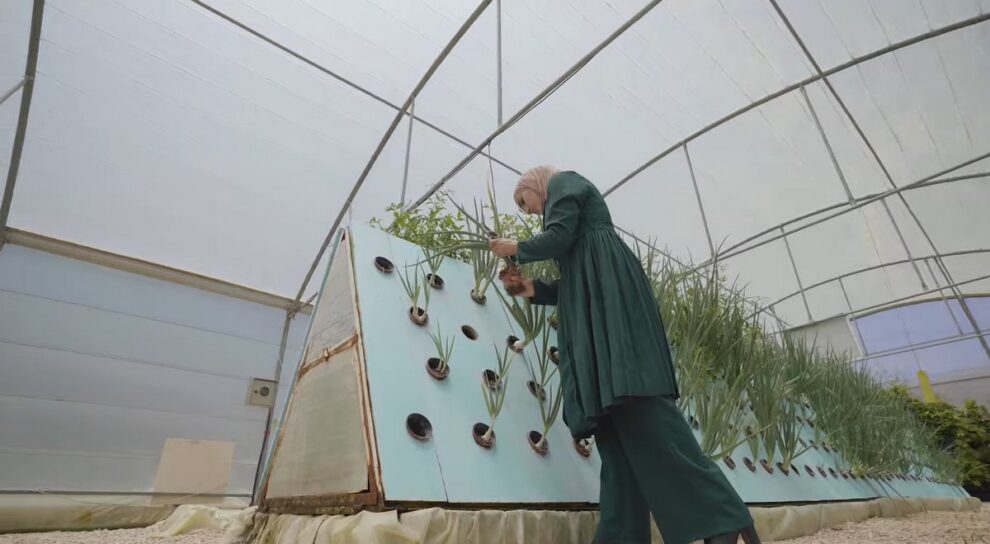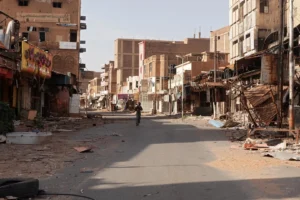The impact of unprecedented shocks to the global food system in the last few years has hit the Middle East & North Africa (MENA) region hard. As net food importers are severely affected by climate change (increasing water scarcity in particular), the region has been highly vulnerable to global market shocks that disrupted supply chains, drove food prices to record high levels, and led to a food insecurity crisis. Farmers and vulnerable people have been amongst the most affected, risking long-lasting impacts on health and livelihoods.
The World Bank has responded quickly to these needs, delivering close to a billion dollars for emergency programs to support people facing food insecurity in MENA.
Looking ahead, building resilient agriculture and food systems that can withstand shocks is a top priority in the region. This requires investment and action across multiple fronts – from climate-smart farming, removing distortions in the food markets, reforming subsidy systems, reliance on financial markets to ensure against climate and disaster risks, and water management to agribusiness development and green job growth.
The World Bank is a committed partner to the countries and people driving forward this transformation. This is a story told by farmers, engineers, and innovators from Yemen, Jordan, Morocco, and Egypt on what they are doing to ensure food – the source of life – remains a sustainable bounty for people and the planet.
Yemen
Farmers in Yemen, a country that has endured years of conflict, are finding innovative ways to produce food for themselves and their communities despite the many obstacles they face. Vegetable farmer Zaid Saleh Aldarbi has transformed his once-struggling farm in Yemen’s agricultural heartland into a thriving venture.
Through World Bank support from the Emergency Social Protection Enhancement and COVID-19 Response Project, Aldarbi got essential resources like a drip irrigation system that uses less water, shade nets to protect his crops, an electric generator, and fertilizers, all crucial in adapting his farm to changing climatic conditions. That, along with training on sound agricultural practices, has made a huge impact on his crop yields and livelihood.
“It’s more than just resources; it’s knowledge and skills that changed our lives,” said Aldarbi. “We learned not just to survive but to thrive.” Aldarbi’s farm is in Jahran, part of the Dhamar governorate, around 100km from Yemen’s historic city of Sanaa. “Food is the source of life,” he added.
Efforts like Aldarbi’s are crucial in Yemen, where food insecurity is a dire issue, with millions of people across the country facing hunger on a regular basis. The World Bank’s approach in Yemen includes immediate help to people through support, such as cash transfers and food assistance, as well as longer-term investments to build resilient services and systems, like agriculture production. Since 2016, the World Bank has provided over US$3.7 billion in IDA grants to help improve the lives of people in Yemen in partnership with UN agencies and local institutions.
Jordan
The World Bank is supporting Jordan as it takes a multi-faceted approach to boosting food system resilience. This includes new investments in climate-smart agriculture production that are creating jobs, building the capacity of a new generation of farmers and agricultural specialists to spearhead water-efficient and climate-resistant farming techniques, and the continual adoption of good practices and innovations. All of this is aligned with Jordan’s new National Food Security Strategy.
One example of this work in action is the World Bank-supported Agriculture, Resilience, Value Chain Development and Innovation project, known as “My Land,” which was launched in early 2023 and will provide about 30,000 farming households with financing to adopt climate-smart agricultural practices. My Land builds on the ongoing pilot project Exploring High Value, Socially- -Inclusive, And Water Efficient Agriculture, which promotes an innovative social enterprise model for commercial fruit and vegetable production in marginalized areas using highly water-efficient hydroponic technology.
The My Land project is expected to generate around 12,000 employment opportunities, particularly for women and youth. The types of activities the project will support include the highlighted examples below, which are already being supported by the Ministry of Agriculture.
Lina Madlboh is a Jordanian farmer who received training in hydroponics and aeroponics. “I gained valuable experience in addressing the challenges and finding solutions,” said Madlboh. By replacing soil with a water-based medium, she’s been able to produce high-quality and high-density crops through hydroponics. This new technique reduces water consumption by 80% and has greatly increased the farm’s productivity, benefitting her family and the local community.

Fatima Abu Akleek, a 22-year-old graduate of the Jordan University of Science and Technology, has been trained in hydroponics and fish farming and currently works at the Faisal Plant nursery in Jerash, a fertile area dotted with rolling hills and plains northwest of Amman. “The training has provided many opportunities and opened wide doors for me,” said Akleek, as she puts her new skills to work converting nutrients produced by fish into non-chemical fertilizer for plants.
Madlboh and Akleek are part of a young generation adopting innovative practices to build sustainable food systems to deliver now and last for the future.
Source : Vertical Farm Daily











Add Comment